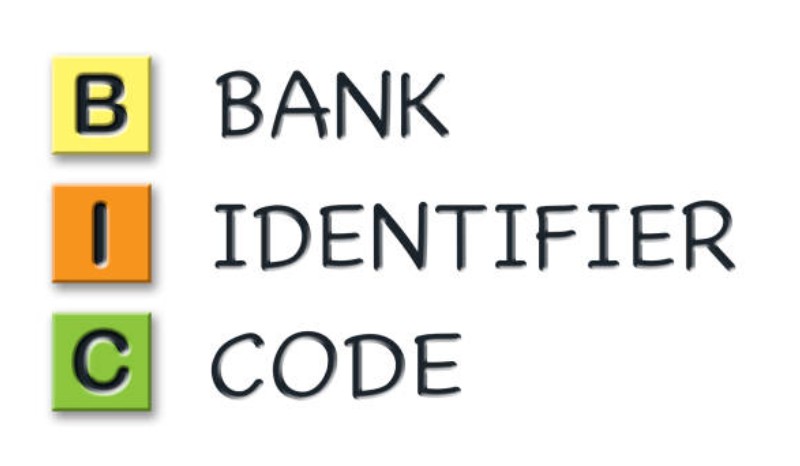Understanding the world of international banking can often seem daunting, especially when terms like What Is a Bank Identifier Code? are introduced. For UK residents and businesses navigating a global financial landscape, grasping the role of these codes is not only informative but essential. This comprehensive guide delves deep into the subject, answering key questions and exploring the nuances of Bank Identifier Codes (BICs) to help demystify international transactions.
What Role Does a Bank Identifier Code Play in Modern Banking?
In today’s interconnected world, a Bank Identifier Code serves as a critical element in international finance. It acts as a unique identification system for banks worldwide, ensuring that every financial institution is recognizable during cross-border transactions. Here’s why BICs are indispensable:
- Streamlined International Transfers: BICs ensure that funds sent across different countries reach the precise bank intended, reducing the risks of errors.
- Enhanced Security: By providing a unique code, banks can verify each other’s identities, adding an extra layer of security to financial transactions.
- Compliance with Global Standards: BICs help banks adhere to international regulations, facilitating smoother operations between different currencies and jurisdictions.
How Did Bank Identifier Codes Become Fundamental in International Transactions?
What Is the History Behind BICs?

Originally developed to address the complex nature of international payments, BICs have evolved significantly over the decades. Early financial systems lacked the precision required for global transactions, leading to potential mishandling of funds. The development of BICs marked a turning point by:
- Reducing Errors: Before the implementation of BICs, misrouted international transfers were common.
- Introducing Standardisation: Establishing a universal system that transcended national borders and bank-specific protocols.
- Promoting Trust: Enhancing confidence in the global banking system by ensuring that financial institutions can reliably verify one another.
What Advantages Do BICs Offer Today?
- Accuracy: They minimize the risk of transferring funds to incorrect accounts.
- Efficiency: They streamline complex transactions by communicating standardised information in real time.
- Global Integration: They promote seamless integration among diverse financial systems, essential in an era of digital banking.
How Does a Bank Identifier Code Affect Your Everyday Banking?

Are You Aware of the Impact on Your Transactions?
When you perform an international transfer, every detail matters. What Is a Bank Identifier Code? It forms the foundation for secure and precise handling of your financial transactions. Consider the following impacts:
- Correct Fund Routing: Ensures that your money goes exactly where it is intended.
- Simplified Verification: Reduces the burden on banks to manually verify numerous transaction details.
- Faster Processing Times: With standardized codes, processing delays are minimised, making transactions quicker.
What Should You Check Before Making a Transaction?
To harness the full benefits of BICs, you should follow these best practices:
- Verify the BIC and IBAN Combination: Double-check that both the BIC and the International Bank Account Number match the recipient’s bank details.
- Confirm with Your Bank: Contact your banking provider if there’s any uncertainty regarding the codes.
- Review Latest Details: As banks occasionally update their BICs due to mergers or structural changes, always ensure that you’re using the most current information.
What Is the Current Landscape of BICs in the UK?
Which UK Banks Are Using BICs Effectively?
Below is an up-to-date table chart showcasing some major UK banks, their respective BIC codes, and key services they offer. This snapshot is current as of April 2025, reflecting the practical application of BICs within the nation’s financial ecosystem.
| Bank Name | Bank Identifier Code (BIC) | City | Primary Services |
| HSBC Bank UK | MIDLGB22 | London | International transfers, corporate banking |
| Barclays Bank | BARCGB22 | London | Retail banking, investment services |
| Lloyds Bank | LOYDGB2L | London | Personal banking, wealth management |
| NatWest | NWBKGB2L | London | Consumer banking, loans, mortgages |
| Santander UK | ABBYGB2L | Manchester | Retail, corporate, and international banking |
How Does the UK Benefit from Updated BIC Practices?
- Improved Transactional Integrity: Up-to-date BICs help reduce instances of misplaced funds.
- Enhanced Customer Service: Faster verification processes lead to better client experiences.
- Global Competitiveness: Ensures UK banks remain highly competitive in the international banking sphere.
Why Is It Crucial to Understand the BIC System?

What Are the Risks of Misunderstanding BICs?
Not understanding what Is a Bank Identifier Code? Could lead to several pitfalls in your financial dealings:
- Transfer delays may occur when codes are outdated or entered incorrectly.
- Financial Losses: Misdirected funds might cause complications in retrieving money.
- Compliance Issues: Using incorrect codes may result in non-adherence to international financial regulations.
How Can You Protect Yourself?
- Stay Educated: Regularly update your knowledge on international banking standards.
- Utilise Official Resources: Rely on verified sources and communications from your bank.
- Monitor Transaction Updates: Keep an eye on any changes in banking regulations that could affect your transfers.
What Do Experts Say About the Future of BICs?
How Will Digital Banking Influence BIC Usage?
Digital banking is rapidly transforming financial services, and the role of BICs is poised for further evolution. Experts predict:
- Increased Automation: More transactions will become fully automated using advanced coding systems.
- Integration with Blockchain: Future banking may see BICs interfacing with blockchain technology to enhance security and transparency.
- Regulatory Updates: Ongoing advancements may prompt revisions in BIC standards, ensuring they remain robust against emerging financial threats.
How Can UK Banks Stay Ahead of the Curve?
- Invest in Innovation: Embrace new technologies that complement the BIC framework.
- Enhance Cybersecurity: Use BICs in tandem with state-of-the-art cybersecurity measures.
- Foster Global Partnerships: Collaborate with international banks to streamline and modernise financial operations.
What Can You Do to Ensure Your International Transactions Are Secure?
What Steps Should You Follow for Transaction Security?
Before initiating any international transfer, consider these essential steps:
- Verify Details: Always confirm the recipient’s BIC along with the IBAN to ensure accuracy.
- Consult Your Bank: Reach out to your bank’s customer support for any clarifications.
- Stay Updated: Regularly check for updates on banking standards and regulatory changes.
What Best Practices Can Safeguard Your Finances?
- Regular Audits: Periodically review your transaction processes to ensure compliance.
- Enhanced Verification Tools: Use online banking tools that automatically verify BIC and IBAN details.
- Customer Education: Take advantage of your bank’s resources and training sessions on secure international transactions.
In Conclusion: How Do BICs Enhance the UK’s International Banking System?
Understanding What Is a Bank Identifier Code? is essential for anyone dealing with cross-border financial transactions. For UK residents and businesses, these codes represent the backbone of secure, accurate, and efficient banking. As the landscape of digital banking continues to evolve, staying informed and vigilant is key. By grasping the fundamentals, verifying your transaction details, and utilising available security measures, you can navigate the complexities of the international financial world with confidence.
For further inquiries or clarification on BICs, consider contacting your bank or following updates through trusted financial news sources. This comprehensive guide is designed to empower you with the knowledge required to make informed decisions in an increasingly global marketplace.
What FAQs Should You Consider About Bank Identifier Codes?
What Is a Bank Identifier Code?
It is a unique identifier used globally to pinpoint specific banks, especially during international transactions.
How do BICs ensure secure fund transfers?
They standardise communication between banks, ensuring that every transaction reaches the right financial institution.
Why is it important for UK residents to know about BICs?
With the UK’s strong international financial ties, knowing about BICs can prevent transactional errors and enhance financial security.
Can BICs change over time?
Yes, banks may update their BICs due to mergers, acquisitions, or changes in international banking standards.
How can I find the correct BIC for my bank?
You can obtain the latest BIC from your bank’s official communications or trusted financial services websites.






